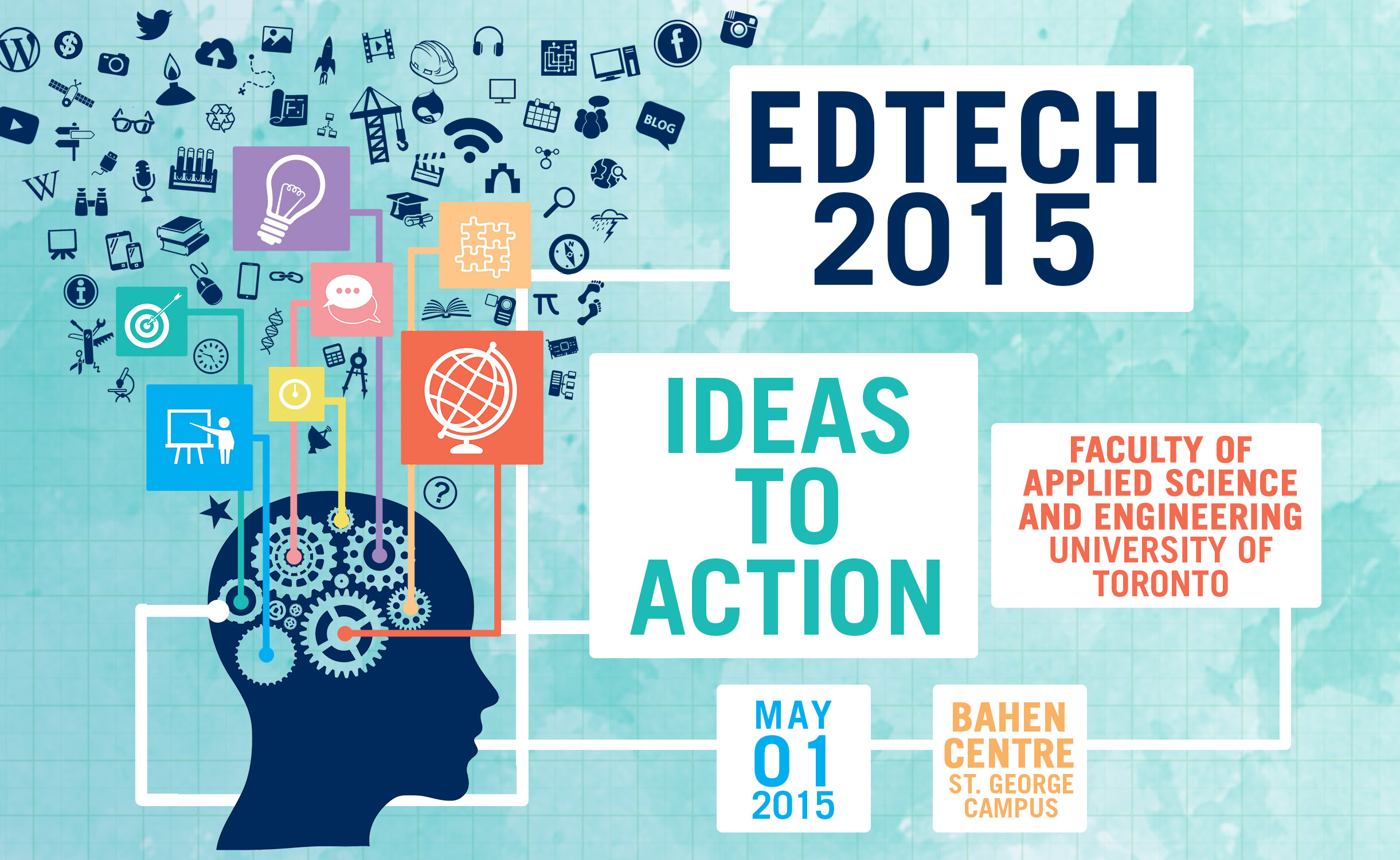This story is Part 4 of an eight-part series, Engineering Experiential Learning, running throughout spring and summer 2015.
Whether it’s informative YouTube videos, educational apps or massively open online courses (MOOCs), digital technology is opening up new opportunities for how instructors can teach. However, keeping up with this proliferation of new tools can be daunting—but it doesn’t have to be.
On Friday, May 1, U of T Engineering is hosting EdTech Workshop 2015: Ideas to Action. Geared toward post-secondary educators, the one-day event is an opportunity for instructors to learn best practices for innovative teaching and learning from some of U of T’s leaders in educational technology.
Free of charge to members of the U of T community, EdTech will focus on three streams: online teaching, tablet teaching and inverted teaching. For each stream, the morning will consist of engaging ‘how-to’ sessions, followed by an afternoon of case studies.
This year’s EdTech is led by U of T Engineering staff members Allison Van Beek, instructional technology specialist, and Estelle Oliva-Fisher, assistant director, student experience & teaching development. The workshop was founded in 2011 by the late Harpreet Dhariwal to encourage knowledge sharing across U of T campus about new learning technologies.
“I have been coming to the EdTech Workshop for several years and find it is inspirational and a source of useful knowledge and contacts for my own courses and curricular development,” said Melody Neumann, a senior lecturer in the Faculty of Arts & Science.
Here are six innovative teaching methods you could leader at EdTech this year:
1. How to film a video in your office—green screen and all!
Scott Ramsay (MSE), recipient of this year’s early career teaching award at U of T Engineering, will demonstrate how to compete with the cuddly cats of YouTube. His presentation—a short educational video on the creation of short educational videos—will cover five different and effective video formats. “This presentation promises to be unlike anything you have seen in an academic conference,” said Ramsay. “Don’t miss it!”
2. Make the most of MyMedia
The latest technology advances have people increasingly worried about their online presence being accessed by unwanted audiences. MyMedia has proved a viable solution for instructors to share content with the U of T community. Application programmer Andy Wagner will demonstrate how to get the best use of MyMedia for instructors who wish to upload and share material strictly among the community.
3. How to own the camera
Senior lecturer Lisa Romkey (EngSci) will take the stage with another senior lecturer, Alan Chong (ECP), to help instructors take control of their on-screen presence and help others to do the same. This interactive presentation will also include participants trying their hand at presenting and receiving real-time feedback from the experts. “Given the increasing role played by videos in our teaching and learning, this is a very important professional development opportunity for our faculty and staff,” said Romkey.
4. How to get your audience involved
With Echo360’s Active Learning Platform, senior lecturer Michelle French made a class of over 900 seem a lot smaller. “Students used their electronic devices to take notes, engage in clicker-type activities and type in questions and answers for the lecturer and each other during class time,” she said. French will describe her experience with the software and the student feedback received in her presentation, as well as provide guidance for instructors who want to incorporate technology enhanced active learning into their own programs.
5. Don’t exclude anyone
The Canadian Association of the Deaf recognises 3.15 million hard of hearing Canadians and the CNIB estimates over half a million live with significant vision loss. Making education material accessible is a critical task for effective teaching. In this workshop, instructors will learn to optimise their tech piece to reach the largest possible audience, while ensuring those with different abilities will experience the same level of learning quality.
6. Does EdTech teaching work?
As an institutional researcher at OpenUToronto and data manager for EdX and Coursera MOOCs at UofT, Stian Håklev is well versed in the world of analytics. Instructors will learn to use these tools to measure the effectiveness of a given mode of delivery and learn how best to to a given audience. In analytics we have a guide that allows us to continue improving our teaching.
Registration for EdTech Workshop 2015: Ideas to Action closes on Wednesday, April 29th.




